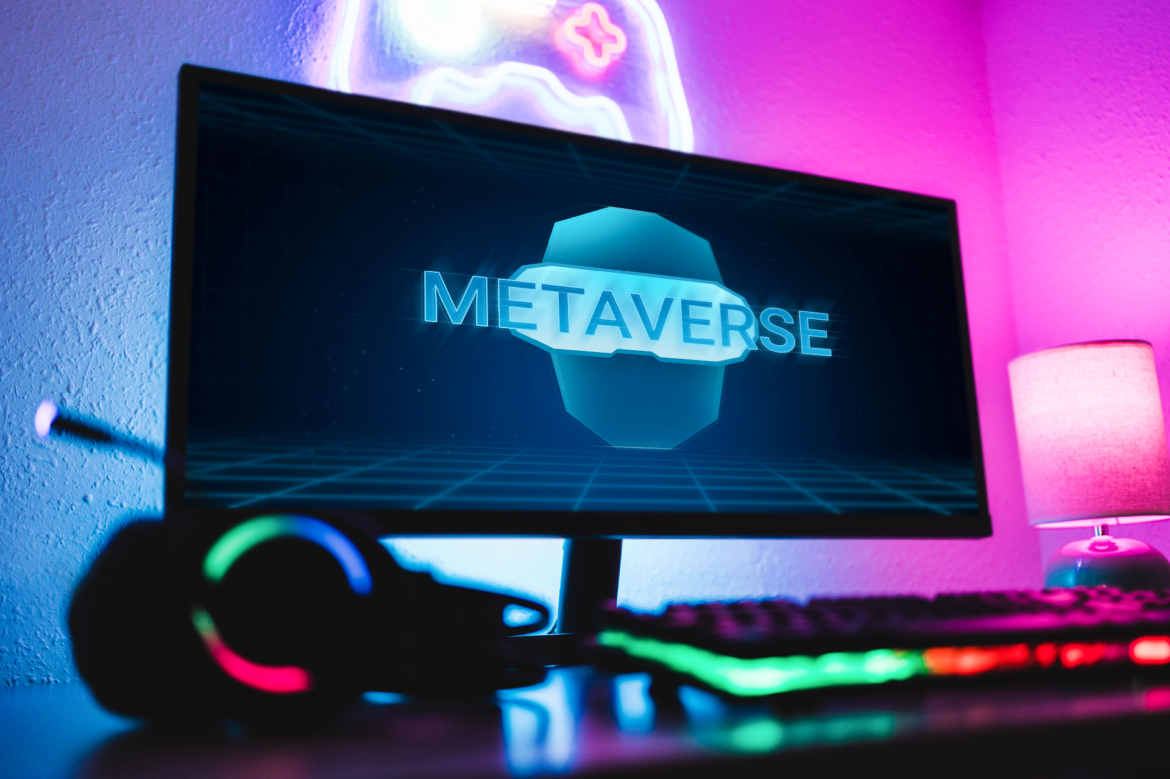The business sector has constantly experienced new trends and advances in recent years. Businesses are searching for new technologies crucial to their survival in the digital era. By utilizing market-disrupting technology, digital transformation for organizations enables them to make strategic decisions, simplify company operations, and create new business models.
One of the significant technologies accelerating corporate change is blockchain. Even though blockchain has significantly increased in popularity in the context of cryptocurrencies like bitcoin, terminology confusion persists. They continue to equate blockchain with bitcoin and frequently use the two terminologies interchangeably.
As a result, anytime they consider what blockchain technology implies for business, they also consider the scope of cryptocurrencies. On the other hand, blockchain for business is based on a distributed ledger technology that is allowed to spread across vetted partners. Its peer-to-peer topology increases transaction transparency, data resilience, and security while lowering extra operating expenses.
Thus, there is no justification for you to miss out on the enormous economic potential that modern technology may provide you just because you are living in the past. This blog post will discuss how blockchain may significantly improve your company’s operations.
Let’s first examine the difficulties that conventional company models encounter.
Challenges Traditional Business Model Is Facing
Traditional company methods are outdated and lack the resources necessary to compete globally. Businesses, both growing and established, have a variety of problems that call for numerous solutions. Here are some difficulties conventional company concepts have in the contemporary, fiercely competitive market.
1. Autonomy
Every step of the traditional business strategy is carried out in “silos.” Others who follow one process are unfamiliar with the data gathered, examined, and used by people who follow another process. There is less openness and trust among all parties due to the autonomous nature of business processing.
2. Time-consuming Procedures
As was already said, every process functions as a unique entity inside a business activity. As a result, teams frequently find themselves looking for, collecting, and evaluating the same data to reach choices.
In addition, the teams’ business procedures must run properly with the help of several third-party intermediaries, which adds time and complexity to the process.
This is another business issue that technology has resolved.
3. Payment Obstacles
Barriers to payment have been lessened due to the development of Blockchain business models.
Payment transfers frequently become more complicated, time-consuming, and expensive due to the availability of many currencies worldwide and the participation of several parties in the process.
4. Lack of Safety
The conventional corporate ecosystem, which includes data and stakeholders, is unprepared for the far more sophisticated and expanding hacking world. Information now only travels a short distance after the breach and disclosure.
After learning about the problems established businesses and startups have with the current paradigm, let’s examine the distinctions that emerge when blockchain technology is used in company operations.
What exactly is a metaverse?
A collection of all virtual worlds created with blockchain technology is known as the metaverse. They might be virtual streets, NFT galleries, or game worlds.
When considering the metaverse, it is essential to remember that it is not a single location. People refer to the next version of the internet as the combination of the new digital spaces.
Who is the metaverse’s owner?
It’s similar to asking who controls the internet to question who controls the metaverse. The metaverse is not entirely under the authority of any one individual or group. Several different stakeholders and developers
create the metaverse.
Specific platforms will unavoidably need to serve as the entrances to the metaverse. These platforms enable users to appear as an avatar inside the metaverse thanks to blockchain technology.
Why was blockchain used to create the metaverse?
An utterly decentralized metaverse requires an open network that certifies what each person owns, sells, buys, and swaps collectively.
The blockchain can be used in this situation. A distributed ledger of records is impossible for any organization to control or unilaterally alter. Collectively, everyone forms a network of validators.
This approach is based on mathematical certainty rather than faith. It serves as the base upon which tens of thousands of programmers build the many apps that together make up the metaverse.
The fantastic thing about that metaverse is that you can participate in thousands of different virtual worlds with just one web3 wallet, which serves as your digital identity. Learn how to obtain a web3 wallet to use it as your metaverse passport.
What is Metaverse Branding?
One of the most critical economic issues in the present world may be metaverse branding. The metaverse is a developing future market. Additionally, businesses already utilizing their brands in the metaverse are positioned to see phenomenal development.

How Can I Build My Brand in the Metaverse?
Given that this trend is still in its infancy, this isn’t the most straightforward question to answer. Additionally, a lot relies on the character and size of your business.
However, metaverse marketing appears to turn into another avenue for your brand plan to be implemented.
You’ll need to collaborate with a development and marketing agency if you’re not currently involved in interactive technologies. They’ll assist you with selecting a platform, organizing your creativity, locating your target market, and creating a presence on the metaverse platform you want to use to connect with people.
There aren’t many agencies specifically focused on the metaverse at the moment, but as the market develops, more of these businesses will undoubtedly emerge.
It would help if you also thought about whether or not your brand can genuinely improve a virtual environment.
In light of the research mentioned above, the following brand categories might succeed in the metaverse:
- Fashion
- Premium items
- Entertainment and the arts
- Education
However, the following brand categories might not do as well in the metaverse:
- FMCG
- Finance
- Business applications
However, the creative possibilities of a virtual environment are practically limitless. Thus nothing can be entirely ruled out.
There are plenty of opportunities for inventiveness even though there aren’t many playbooks for companies that have already made successful metaverse initiatives. Brands with the guts to take a chance can be great innovators.
Three Risks of Metaverse Branding: What to Consider Before You Dive In.
1) Customers might not want to stay there for long
On the surface, a lot of metaverse ideas look fantastic. However, they can have unrealistic viewpoints that aren’t grounded in reality.
Numerous blockchain gaming initiatives have emerged during the past few years; typically, these are online games linked to cryptocurrencies that allow players to claim virtual items or land as their own. The issue is that they put too much emphasis on the transactional nature of their in-game stuff and not nearly enough on what will entice people to play them.
2) To participate, customers must pay more
It appears that VR headsets will be the primary gateway to metaverse experiences.
However, VR gear is still specialized and somewhat costly, costing the cheapest Meta device $299. Although this might change, it’s uncertain if the use of VR headsets will become sufficiently common to justify allocating money from your marketing budget to be included.
Around 10 million VR/AR headsets will be delivered globally in 2021. It’s expected to nearly quadruple in 2023, but does that indicate that enough of your audience will be online then?
3) Selecting the right platform might be complex.
In “How Brands Can Enter the Metaverse,” Janet Balis, who leads EY’s consulting professionals in the Americas, focused on the customer agenda and revenue growth, explains:
The financial and technological requirements differ significantly since each company that develops a virtual world does so with its access, membership, monetization rights, and formats of creative expression.
Therefore, in addition to determining which virtual environment your target market frequents, you’ll also need to play by each virtual environment’s rules and adapt your digital assets to conform to those regulations. It can get pricey.
Millions of investors or organizations fund blockchain startups

Why is blockchain development in this area much faster than most organizations realize?
Following are the key points to understanding how blockchain plays a vital role for an organization.
1. Smart Contracts
Smart contracts are the primary way that blockchain is being used to revolutionize business.
Smart contracts are a type of self-executing contract that, as their name suggests, include all the terms and conditions from both parties expressed in the form of codes. Then, these codes are kept on a decentralized blockchain network to make them unchangeable.
2. Simpleness of Payment
One of the obvious uses for decentralized blockchain networks is the integration of blockchain with electronic payments. Blockchain has also made it easier for startups and businesses to manage their cash flow by removing the need for third parties and related documentation like billing statements and invoices.
3. Supply Chain Management
When discussing the function of blockchain in the supply chain, it is essential to note that the technology enables SMEs to trace their goods/services at every stage of the process, from production through delivery to the customer.
4. Improved Hiring
It is also becoming clearer how vital blockchain is to the business world’s hiring practices.
5. Successful Marketing Campaigns
Focusing on the blockchain’s effects on the commercial economy also helps marketing initiatives.
6. Robust Security
Introducing strong security measures in the environment is another significant function of blockchain in business.
7. Customer Engagement
Blockchain technology also helps businesses find new ways to engage with a larger target market.
8. Increased Efficiency and Speed
One of the main advantages of blockchain technology is that it automates labor-intensive procedures to increase efficiency. Additionally, with the use of automation, human-caused mistakes are eliminated.
9. Financial Management
Businesses now spend a lot of money managing and enhancing their present system. They anticipate investing in anything that lowers costs or enhances their present procedures because of this.
10. Capital Raising
Industry adoption of blockchain offers company owners an opportunity to obtain funds through initial token offerings (ITOs). ITOs are tokens that may be traded freely on exchanges.


![Copy of [Original size] Perfectly Imperfect Digital - Perfectly Imperfect Digital](https://perfectlyimperfectdigital.com/wp-content/uploads/2022/07/Copy-of-Original-size-Perfectly-Imperfect-Digital.png)